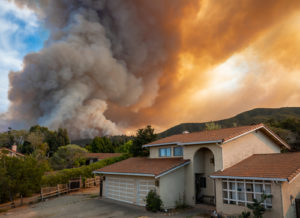
The U.S. House of Representatives on Sept. 13 voted 328-88 to approve a bipartisan bill offered by U.S. Rep. John Curtis (R-UT) that would help ensure resources are accessible for communities working to recover from devastating wildfires.
Rep. Curtis cosponsored the Wildfire Recovery Act, H.R. 1066, in February 2021 with bill sponsor U.S. Rep. Joe Neguse (D-CO). They are co-chairs and founders of the Bipartisan Wildfire Caucus.
Specifically, H.R. 1066 — which the U.S. Senate received on Sept. 14 for consideration — would increase flexibility in the federal cost share for Fire Management Assistance Grants (FMAG) to help communities rebuild from wildfire damage.
“I am proud of the progress we have made in the Bipartisan Wildfire Caucus to pass legislation that will provide flexibility to FEMA and move recovery funds to assist as soon as possible after a fire,” Rep. Curtis said last week. “The Wildfire Recovery Act allows relief funds to flow more quickly to communities across the West and in Utah when they are most needed after a disaster.”
FMAG grants are authorized by the Federal Emergency Management Agency to reimburse the costs of fighting a fire. The grants allow a state to submit receipts for reimbursement of 75 percent of eligible costs to fight the fires, according to a bill summary provided by Rep. Curtis’ office, which pointed out that there is no current flexibility for the FMAG program cost share.
If enacted, H.R. 1066 would grant flexibility to the program, allowing the federal cost-share to be raised above 75 percent when the wildfire reaches a qualifying threshold, in turn bringing more resources to communities in need, the summary says.
“The Wildfire Recovery Act helps to support state and local governments in cases of disaster, covering the costs of critical services needed for protection and recovery,” said Rep. Neguse. “The strong bipartisan support for this bill … gives me hope that Colorado families and communities will never again have to navigate recovery alone.”



